‘Remembrance’ recalls Holocaust love story spanning three decades
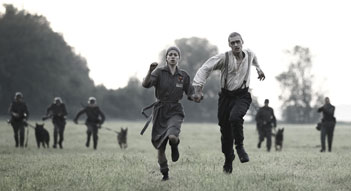 A Jewish Holocaust survivor is haunted by memories of the Polish lover that risked his life to save her. The romantic war drama “Remembrance” directed by Anna Justice is the opening night film of the 14th Annual Kansas City Jewish Film Festival.
A Jewish Holocaust survivor is haunted by memories of the Polish lover that risked his life to save her. The romantic war drama “Remembrance” directed by Anna Justice is the opening night film of the 14th Annual Kansas City Jewish Film Festival.
The remarkable love story that blossomed amidst the terror of a German concentration camp in 1944 Poland is inspired by true events. A bond of passionate feelings forms between Tomasz Limanowski, a young Polish prisoner, and Hannah Silberstein, a German Jew from Berlin. Although men and women are separated in the camp, these two lovers meet clandestinely. Against all odds, Tomasz finds the courage to pull off a daring escape and rescues Hannah from a likely death. They survive a treacherous journey to freedom through the forest. They do whatever it takes to find food, clothing and shelter.
They end up at Tomasz’s mother’s house. His mother, upon being introduced to Hannah, tells Tomasz to get rid of her. She is against Tomasz marrying a Jewess. Tomasz is in possession of a film canister that he smuggled out of the camp. It is vital evidence of the Final Solution. He needs to turn this information over to the Polish homeland army. He keeps this a secret from Hannah. He leaves for Warsaw and promises to be back in two days.
Hannah is unable to get along with Tomasz’s mother. After nearly being discovered by an SS officer, she makes her way to Tomasz’s older brother’s house. She forms a friendship with sister-in-law Magda. Hannah finally gives up hope when Tomasz never returns.
The other half of the film takes place more than 30 years later in Manhattan’s Upper East Side. Hannah is a happily married 52-year-old mother of a college-aged daughter. While waiting to pick up her tablecloths at a New York City dry cleaners, she accidentally notices a television interview with a man that resembles her former Polish lover. He is recalling his first encounter with a woman who became the love of his life. Hannah is overwhelmed by memories of the past she has never shared with anybody. She begins to search again for Tomasz believing that he is still alive.
The movie goes back and forth between 1944 and 1976 much like the narrative in “Sarah’s Key.” Initially, the scenes are short to keep the viewer guessing. The scenes are then replayed and drawn out in longer takes to fill in the blanks.
A different set of actors play the central couple in the two time periods. The cast is mostly unknown to American audiences except for David Rasche (“Burn After Reading”) who plays Hannah’s present day researcher husband Daniel Levine.
Besides the superb acting, the movie’s strengths include the beautiful cinematography and an intelligent script that explores the deepest emotions of mankind. The movie was previously shown at Jewish film festivals around the world and won the Audience Award in Los Angeles, London, Hong Kong and Zagreb.
This emotionally moving film is for mature audiences with scenes of torture and sexuality. It holds your interest throughout a running time of 105 minutes. The dialogue is in German, Polish and Russian with easy-to-read English subtitles. It gets my vote as the best film of this year’s festival and deserves my GOOD rating of 3 stars.
Kansas City Jewish Film Festival
Seven films will be featured at the 14th Annual Jewish Film Festival. They are:
“Remembrance,” 7:30 p.m. Saturday, Oct. 13
“The Rescuers,” 2 p.m. Sunday, Oct. 14
“A Serious Man,” 7:30 p.m. Monday, Oct. 15
“Jews and Baseball — An American Love Story,” 7 p.m. Wednesday, Oct. 17
“This Is Sodom,” 8 p.m. Saturday, Oct. 20
“The Yankles,” 4 p.m. Sunday, Oct. 21
“Le Concert,” 8 p.m. Sunday, Oct. 21
The film festival program is posted in its entirety at www.kcjff.org, along with preview clips and links for ticket purchase.
Tickets for individual films or a festival pass are available online at kcjff.org or by calling the box office 913-327-8054. Box office hours are 3 to 6 p.m. Monday through Friday. All films are general admission; festival pass holders are seated 10 minutes before general public.
For further information contact Krista Blackwood, director of cultural Arts at 913-327-8073 or .



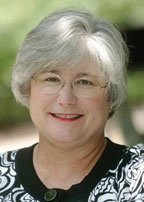 The community is buzzing about a newly published book, “Am I a Jew?” written by Theodore Ross, an author from New York. It’s been out a month or so already. I wasn’t terribly interested in it, and it just sat on my desk waiting to be given to one of our book reviewers. However out of the blue, just before Yom Kippur, I got some phone calls about it. Then I was intrigued.
The community is buzzing about a newly published book, “Am I a Jew?” written by Theodore Ross, an author from New York. It’s been out a month or so already. I wasn’t terribly interested in it, and it just sat on my desk waiting to be given to one of our book reviewers. However out of the blue, just before Yom Kippur, I got some phone calls about it. Then I was intrigued.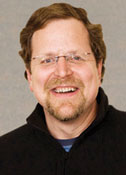 For someone like me, who spent most of his career in the business community, working at Jewish Family Services for the last five years has been a real eye-opener. I knew there were people living in poverty in our community, but I never got close enough to those in need to really understand their stories. But at JFS, as I talk with our social workers and clients, I have learned just how basic some of those needs are.
For someone like me, who spent most of his career in the business community, working at Jewish Family Services for the last five years has been a real eye-opener. I knew there were people living in poverty in our community, but I never got close enough to those in need to really understand their stories. But at JFS, as I talk with our social workers and clients, I have learned just how basic some of those needs are.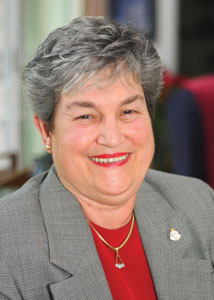 We are all watching history unfold before us. President Obama and Gov. Romney are engaged in a tight race to see who will be the next president of the United States. The Senate race between Todd Akin and Claire McCaskill has the national spotlight shining on the state of Missouri. As it does for every single election, National Council of Jewish Women and its Greater Kansas City Section, of which I am a life member and past president, has words of wisdom to share regarding the upcoming election.
We are all watching history unfold before us. President Obama and Gov. Romney are engaged in a tight race to see who will be the next president of the United States. The Senate race between Todd Akin and Claire McCaskill has the national spotlight shining on the state of Missouri. As it does for every single election, National Council of Jewish Women and its Greater Kansas City Section, of which I am a life member and past president, has words of wisdom to share regarding the upcoming election. The deadline to register to vote in Kansas is Tuesday, Oct. 16. Advance voting by mail begins Wednesday, Oct. 17. Voters must complete an Application for Advance Voting Ballot in order to receive a ballot by mail. In Johnson County registered voters can simply call the election office at 913-782-3441 to request the Application for Advance Voting Ballot or visit www.jocoelection.org and download a form. Per the new state law, a registered voter applying for a mail-in ballot or voting in person must provide a photo ID. Those voting by mail must provide either a valid Kansas’s driver’s license number or non-driver identification card number on the form. There are many valid forms of ID listed on the application; or simply call the election office for more information.
The deadline to register to vote in Kansas is Tuesday, Oct. 16. Advance voting by mail begins Wednesday, Oct. 17. Voters must complete an Application for Advance Voting Ballot in order to receive a ballot by mail. In Johnson County registered voters can simply call the election office at 913-782-3441 to request the Application for Advance Voting Ballot or visit www.jocoelection.org and download a form. Per the new state law, a registered voter applying for a mail-in ballot or voting in person must provide a photo ID. Those voting by mail must provide either a valid Kansas’s driver’s license number or non-driver identification card number on the form. There are many valid forms of ID listed on the application; or simply call the election office for more information.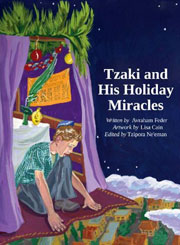 When you receive a review copy written by a former neighbor and friend, you can’t help but take notice, and this was the case when this book arrived in our post office box.
When you receive a review copy written by a former neighbor and friend, you can’t help but take notice, and this was the case when this book arrived in our post office box.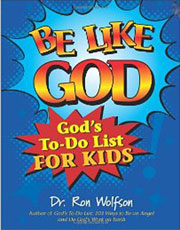 Dr. Ron Wolfson, professor of education at the American Jewish University in Los Angeles, has written about 10 books for children and adults.
Dr. Ron Wolfson, professor of education at the American Jewish University in Los Angeles, has written about 10 books for children and adults.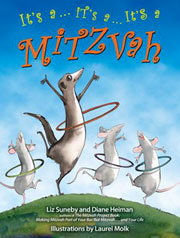 If you know any 3- to 6-year-olds, sit them down and read this to them. As you show them the illustrations of animals they will probably squeal with delight as did the 3-year-old on whom I practiced reading this book.
If you know any 3- to 6-year-olds, sit them down and read this to them. As you show them the illustrations of animals they will probably squeal with delight as did the 3-year-old on whom I practiced reading this book.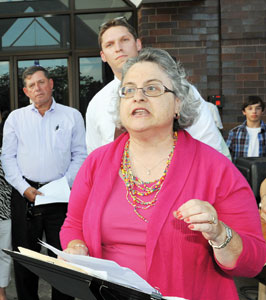 Summer, 40 years ago, I was in high school. The Olympics had never been important to me, as I was not a sports fan. However, that year, 1972, was different. A young Jewish swimmer was winning gold medals … one after the other. And every American was glued to the television to see if he could really win seven gold medals. And he did. Mark Spitz became both an America icon and a Jewish hero!
Summer, 40 years ago, I was in high school. The Olympics had never been important to me, as I was not a sports fan. However, that year, 1972, was different. A young Jewish swimmer was winning gold medals … one after the other. And every American was glued to the television to see if he could really win seven gold medals. And he did. Mark Spitz became both an America icon and a Jewish hero!